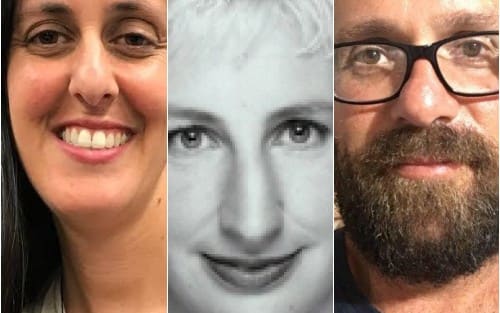“We’re not born with Kiwi ingenuity, it’s taught, and it’s being lost.”

Photo: Provided
"Teachers hope to end "near death" of arts in school” ran the Newsroom headline in an article by Professor of Education at the University of Auckland Peter O’Connor this week.
At the same time, Te Papa in Wellington saw the first gathering in more than a decade of leading arts educators from schools from across the visual arts, music, dance and drama subject areas. They came together because they say there is a crisis, forming a national alliance for educators to advocate for more support and resources for teaching the arts in schools.
Head of the Dance Subject Association of New Zealand Melanie Turner told RNZ’s Lynn Freeman that teachers felt under-resourced across all arts disciplines, and that the legal obligation for access to the arts in schools is not being met.
“Teachers don’t feel confident, resourced or educated enough,” Turner says.
A key problem on which these educators agree is a huge disparity in access.
“Equity is a severe concern,” agrees Francis Potter, President of the Aotearoa New Zealand Association of Arts Educators. “There is even a major lack of delivery of the curriculum at the primary school level. It’s just not being met. Speaking from a secondary school perspective, we’re having to teach 13-year-olds the primary colours.
“We’re not born with Kiwi ingenuity, it’s taught, and it’s being lost.”
Representing the music and drama education associations Priya Gain says there is a lack of consistency across the programmes.
“It’s not every child in every school in New Zealand - so it’s an exciting opportunity to come together to advocate to the Ministry of Education. We’re excited about engaging in the conversations that are going on about wellbeing at the moment... So much of what is going on at the moment is voluntary, by those with the passion”
Prime Minister Jacinda Adern has been very vocal in saying that she wants to see the arts as part of all areas of NZ society. She has spoken of the golden age of Peter Fraser back in the ‘40s and wanting to bring back a curriculum that "allows creativity to develop". But there’s frustration here at the lack of action to meet this kind of rhetoric.
Like Adern these educators agree that we have a great history to look back on:
“You don’t have to look back far to see some really great models, like advisory services,” says Gain.
So how did it come to this? Peter O’Connor writes that the "life blood of a creative education have been systematically dismantled from schools. National standards in literacy and numeracy narrowed the curriculum in primary schools and the biggest casualty was the arts. Although the standards have gone in name, their ghost still hangs over classrooms restraining both what and how things are taught and measured."
“It’s been, as they say, the death of many cuts over successive governments,” adds Potter, “making success quantifiable by too narrow a delivery of the curriculum. A focus on measurable outcomes.”
These teachers also point to a reduction in time in teacher training given to the arts.
“It comes down to the supervising teacher as to what they will get,” says Turner. “Universities are relying really heavily on practicums, and teachers are already under stress in the classrooms. “
Turner says the arts curriculum already provides an inspiring vision; that the structures are in place but the resources for all schools aren’t there for it to be implemented.
“The reality," she adds speaking for her subject area, "is that dance is infrequently taught in primary schools.”

